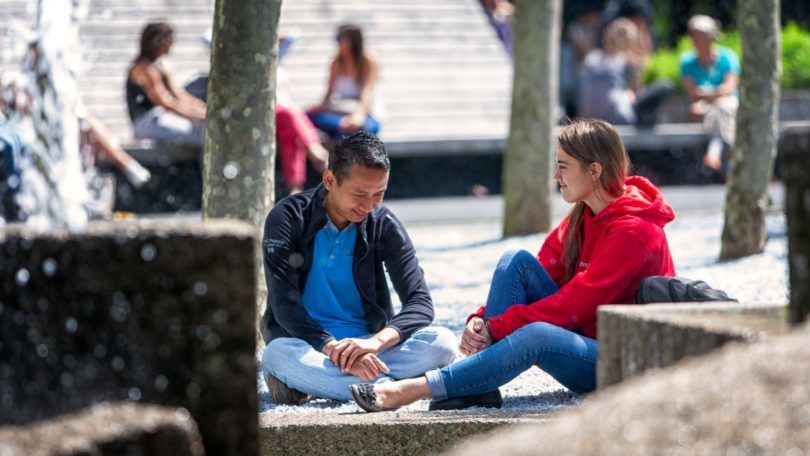Loneliness among students a cause for concern
-
 Nijmegen Campus. Photo: Dick van Aalst
Nijmegen Campus. Photo: Dick van Aalst
An alarming percentage of students feel lonely at times and more than half feel stressed, according to a university survey. The Rector Magnificus finds these results concerning and wants to do something about it.
A quarter of students feel ‘surrounded by emptiness’ and one in five students ‘miss the company of others’. These were the results of a survey on student well-being carried out by the university, which has prompted the Executive Board to conduct follow-up research. Rector Magnificus Han van Krieken is concerned about the loneliness of campus residents.
56% of students experience ‘a lot’ or ’too much’ academic pressure
More than four thousand students participated in the survey, which was administered at the request of student council members who were concerned something was going on. The Executive Board had its suspicions as well, as the number of requests for consultations with student psychologists was on the rise.
‘I was shocked to find that 20% of students miss the company of others’, says Aline Tuls, one of the initiators. ‘That’s an alarming number on a campus of 20,000 students.’
Side job
This increase in the number of students who experience psychological problems has not gone unnoticed. The Dutch National Students’ Association raised the issue last April, hoping to draw attention to the long wait times for student psychologists. Radboud University previously created several ‘living rooms’ to help students feel more at home and the student chaplaincy has made an effort to bring people together.
According to the initiators, a large-scale study on the psychological well-being of students has never before been conducted in Nijmegen – or elsewhere for that matter. ‘That’s why we can’t compare our results with those of other cities’, says the Rector.
The study found that 56% of Radboud students experience ‘a lot’ or ’too much’ academic pressure. In addition, 34% feel this pressure negatively affects their studies and their personal life and 43% feel that stress negatively affects their overall sense of happiness. Students these days spend more time on their studies and their side jobs than they used to. In 2016, first-year students spent 36.9 hours on their studies per week compared to 32.2 hours a week in 2014. For senior students, this figure was 33.4 in 2014 and 37.3 in 2016. Women tend to experience more stress-related symptoms than men.
According to the student council members, it is hard to manage stress if you have to graduate within four years, work on your CV, make time for the things you enjoy and earn an income all at the same time. ‘It’s a pity that so many students are afraid to take out a loan now that the basic study grant has been abolished’, says Maarten Dietz on behalf of the council. ‘Some parents discourage their children from loaning money as well, which puts added pressure on them.’
‘If you’ve had a bad day, you don’t put a post about it on Facebook’
The Rector doesn’t know if there is a direct link between added work pressure and loneliness. ‘It’s also a societal problem’, he says. ‘Society has become more individualistic, with things like religion and faith playing an increasingly smaller role.’ In addition, social media is giving students a skewed image of other people’s lives, presenting an image of happiness and perfection, with no down days. Aline Tuls and Maarten Dietz understand this. ‘If you’ve had a bad day, you don’t put a post about it on Facebook.’
Loneliness
The study also found that the percentage of students who consider themselves ‘happy’ is lower than other Dutch citizens aged 18-25, namely, 72.2% and 88.7% respectively. Rector Van Krieken announced that a follow-up study will be carried out as soon as possible. The previous survey did not address why students feel emptiness, loneliness or unhappiness. The students who expressed an interest in joining the focus groups set up by the university will start after the summer. The Executive Board plans to use the results of these focus groups to implement new measures. ‘Nijmegen not only values education and science, we also value each other. That’s part of the university’s DNA.’
According to the students, opening up this issue for discussion is a step in the right direction. They hope other universities will follow their lead and conduct a study on the well-being of their own students. ‘This problem is not limited to Nijmegen.’



GvM schreef op 7 maart 2018 om 15:15
Hoi, interessante topic maar zijn er ook bronnen die gelinkt zijn naar de survey die uitgevoerd is of waarop dit artikel is gebaseerd? 🙂